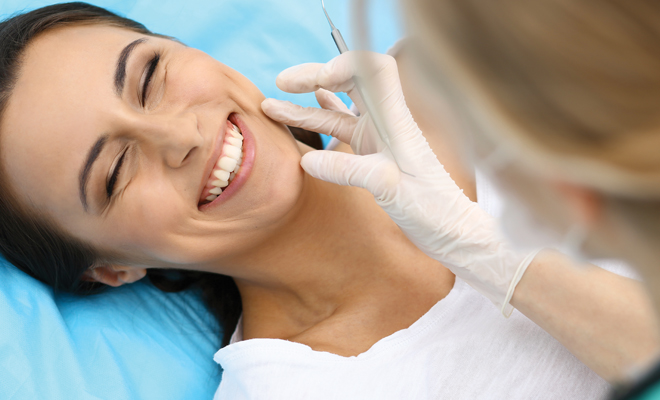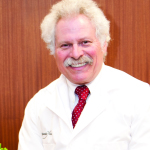
A Dental Checkup Could Save Your Life
Q: Why is it so important to have regular dental checkups?
A: The first thing that probably comes to mind is to check for cavities and your periodontal health, or your gum and bone. While you wouldn’t be wrong, dentists can do far more than that. For instance, when I meet a new patient, I can look at their teeth and tell whether they have gastric reflux (heartburn) and how bad the problem is. When a physician looks into the mouth, she looks to the back of the throat and ignores the teeth. I can look at the mouth of my new patient and tell them that they have severe gastric reflux and that it’s time to see a gastroenterologist, who can help with their stomach problem. Severe gastric reflux not only removes some or all of the enamel from teeth, but also can cause ulcers of the esophagus, which can lead to esophageal cancer. In the same way, dentists are often the first doctor that will diagnose skin cancer on the face, throat cancer or oral cancer, including the tongue. Oral cancer has only a 35 percent survival rate because it is often not diagnosed in time.
Sometimes a new family will start as patients and send their teenager as the first member to “see if they like the dentist.” Often we see a teenager who is lethargic and overweight, and we can immediately determine that the youngster cannot breathe easily or at all through their nose. We strongly suggest a visit to the ear, nose and throat specialist, or ENT, so that the teenager can have corrective nose surgery. One of our patients was 15 years old, overweight and liked sports, but he couldn’t participate because he was always gasping for air. Following nose surgery, he grew another two inches, lost 50 pounds, and became a volleyball star at his school.
Often one of my long-term patients will come in for a checkup or with a dental problem, and I detect that their health has deteriorated. Most of the time we have a discussion and I learn that my patient has been treated for a health issue for months but that there has been no improvement. Just recently, a very long-time patient broke a tooth and wanted it repaired. Unfortunately, she had great difficulty breathing, and she told me that her local physician had told her that she needed to get her affairs in order. I strongly suggested the Cleveland Clinic for an evaluation. After several visits, her breathing had improved and stabilized. This is an example of what happens when a new set of eyes sees a patient and can offer a helpful suggestion.
Sometimes a dentist is the only doctor that a patient sees, and the dentist will diagnose systemic health issues that will save a patient’s life. A butterfly rash on the nose and face can often be systemic lupus. A dry mouth in conjunction with dry eyes can be Sjogren’s disease. Commonly, gastric reflux and sleep apnea have a third deadly component in cardiac problems. As a dentist, I will see the gastric reflux, which leads to a discussion about sleep apnea and a suggestion to see a cardiologist.
Sometimes a dentist sees a teenager with a tremendous number of new cavities, and the dentist will diagnose the youngster as having “meth mouth,” which again can open a discussion with the young patient or the parents about the possibility of a drug problem. And if drugs are not causing the massive tooth decay, then a seven-can-a-day habit of Pepsi or Mountain Dew is the problem, and we can discuss that too.
Let’s not think of regular dental exams as only being important to save your teeth or gums, but also as part of getting knowledge of your overall physical well-being. ■
Written by: Dr. Gerald Benjamin
Gerald C. Benjamin, DDS, brings tireless devotion to his work, 39 years of experience in restorative and esthetic dentistry and the highest quality service to create extraordinary smiles in the New York Capital District. Dr. Benjamin believes it takes a team to achieve the long-lasting effects of a great smile. His practice is located at 18 Division Street, Suite 205 in Saratoga Springs, New York; call 518-583-1116 for a consultation.








